When you grow up in a small town, every neighboring small town is a rival of some sort. If not in sports, in things to do or how "cool" the people in each town are. I often remember joking around with a group of friends (comprised of surrounding towns) over which hometown, school system, sports team, local restaurant was best. My older family members who graduated from my same high school would joke that anything I got wrong was because I went to Hamilton schools -- implying my education was less than par. This was normal in my small town life. It's one of those running jokes that isn't necessarily true, but fun to poke at anyway.
That was why I was so surprised at the reaction to a post of mine the other day. I made a light-hearted stab at the quality of the school system in the town neighboring my hometown. While this particular town wasn't my high school's rivals, that was only due to them being in a bigger class than us. What really took me by surprise was the amount of friends I had that openly and blatantly said, "I'm offended by this." I thought they were joking at first, until some other friends of mine observed the legitimate anger exhibited by these people that day. Somehow, a comment made in no way shape or form towards or about them elicited such strong responses that they were physically upset by it. To this, I can not bring myself to understand. It seems to illustrate a growing problem within our society that has grown increasingly within the millennial generation: offensiveness.
I don't know what it is about this generation, but we have this mindset that everyone else in the world needs to be sensitive to our feelings. That others should stifle their thoughts and opinions for the very possibility that somebody somewhere will have hurt feelings over it. The problem is, no matter what you do, somebody is going to disagree with you. No matter what position you take or what opinion you believe, someone else is going to believe, just as strongly, the opposite.
In a CBS news segment, Former Chief Justice, William Rehnquist, said, “The fact that society may find speech offensive is not a sufficient reason for suppressing it.” You see, the thing is, you have every right to be offended by whatever you want. It's okay to get your feelings hurt or to get upset by something. It's even okay to dislike someone for thinking a certain way (a little narrow-minded if you ask me, but that is entirely your right.) What's not okay is trying to silence someone else for upsetting you.
I know we've started priming our youth to believe this is okay through participation trophies, letting everybody on the team and banning certain books from school libraries, but that is literally not how the world works. Their college professor isn't going to give them an A just because they "worked really hard" or because a B would lower their GPA. He/she will give them an A if their work deserves it. Their future boss isn't going to sugar-coat when their work is sub-par just because they might get upset over it. He/she will be direct in their shortcomings and expect them to improve or leave. Simple as that. Their friends aren't going to walk on eggshells stifling their own voices in fear of their fragile feelings breaking. They are going to express their beliefs and speak their mind, expecting their friends to be open-minded enough to respect their right to believe so, even if they disagree. Getting offended over something you disagree with prevents any form of discussion. Your emotions cloud your ability to listen and reason. There is no "safe space" in real life. You either deal with it or you fail.
I think this shift towards entitlement and contentiousness stems from the growing awareness of bullying and the political correctness that followed. While bullying is a very important issue that should not be taken lightly, we are trying to counter this problem in the least productive way possible. People are confusing expressing beliefs or thoughts with bullying or some form of discrimination. However, Oxford dictionary defines bullying as using, "superior strength or influence to intimidate (someone), typically to force him or her to do what one wants," and discrimination as, "the unjust or prejudicial treatment of different categories of people or things, especially on the grounds of race, age, or sex." Bullying -- something that should be taken as highly offensive -- targets one person for an attribute they think are weaker than them. Discrimination is targeting a specific group of people, believing they are inferior in some way due to a specific attribute. Going back to my "offensive" example from above, if I had specifically said that these people were uneducated due to the school they went to, I'd understand their offense. If I had specifically said these people were uneducated due to their race, gender, eye color, age, etc., I would understand their offense. A light-hearted joke obviously not directed at them or suggesting in any way they in particular are uneducated, I don't understand the offense.
People in this world being persecuted for their religion, race and sexual orientation? That's offensive.
A comedian making a "girl in the kitchen" joke? Not actually offensive.
Children all over the world homeless, starving and dying of treatable diseases? Offensive.
Red Starbucks cups? Not actually offensive.
Veterans who fought for our freedoms going without shelter, food or medical attention? Offensive.
Breastfeeding in public (or formula instead of breast feeding)? Not actually offensive.
Six companies controlling 90 percent of American media? Offensive.
A song encouraging thick women to love their bodies (or thin women to love theirs)? Not offensive.
Seriously, people. Since when was whether or not a woman should wear a bra or take her husband's last name more important than the real social issues that plague our country? Are we really so trifle of a society that we cause a bigger uproar over whether someone eats meat or not than average Americans not even being able to provide meat for their families? What was the point that we decided personal feelings and thoughts (which are constantly fleeting), were worth more than civil liberties (which have remained constant for years)?
So, next time you read/hear/see something that hurts your feelings or makes you feel in any way offended, ask yourself the following questions:
1. Was this directed at me in particular?
2. Will this actually affect my overall well being?
If you have answered yes to any of the following, you get on your high horse and let them know who's boss! If not, keep your keyboard-warrior fingers at bay and move on. Just scroll right past as I direct you to the following meme.
To those of you who share my frustrations and already value diversity and differing opinions more than a slight change in your feeble emotions, I salute you.




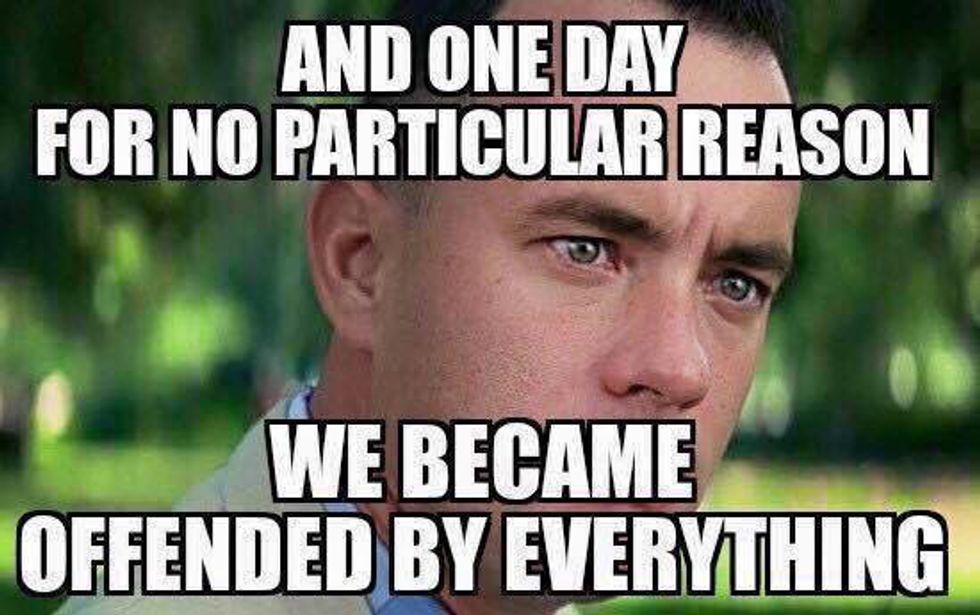
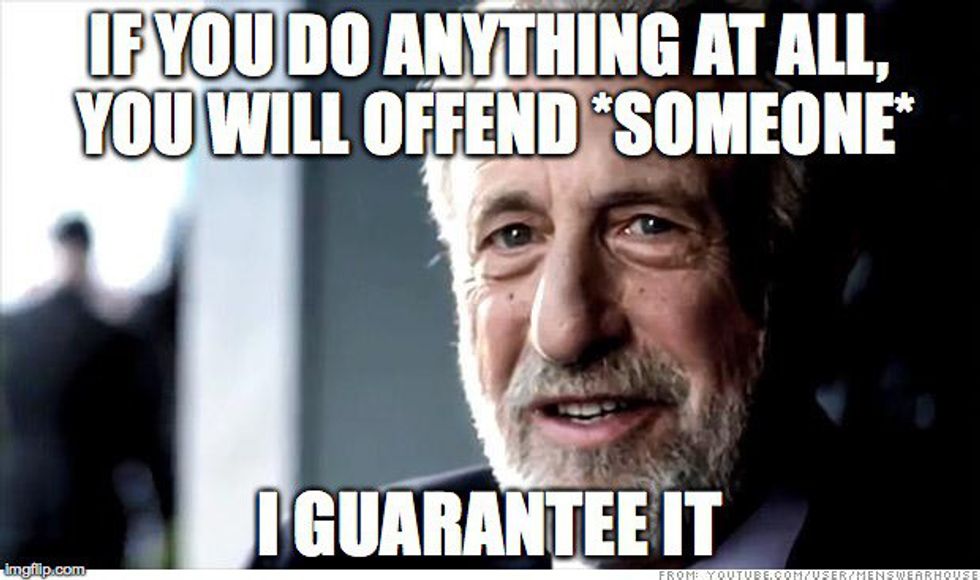

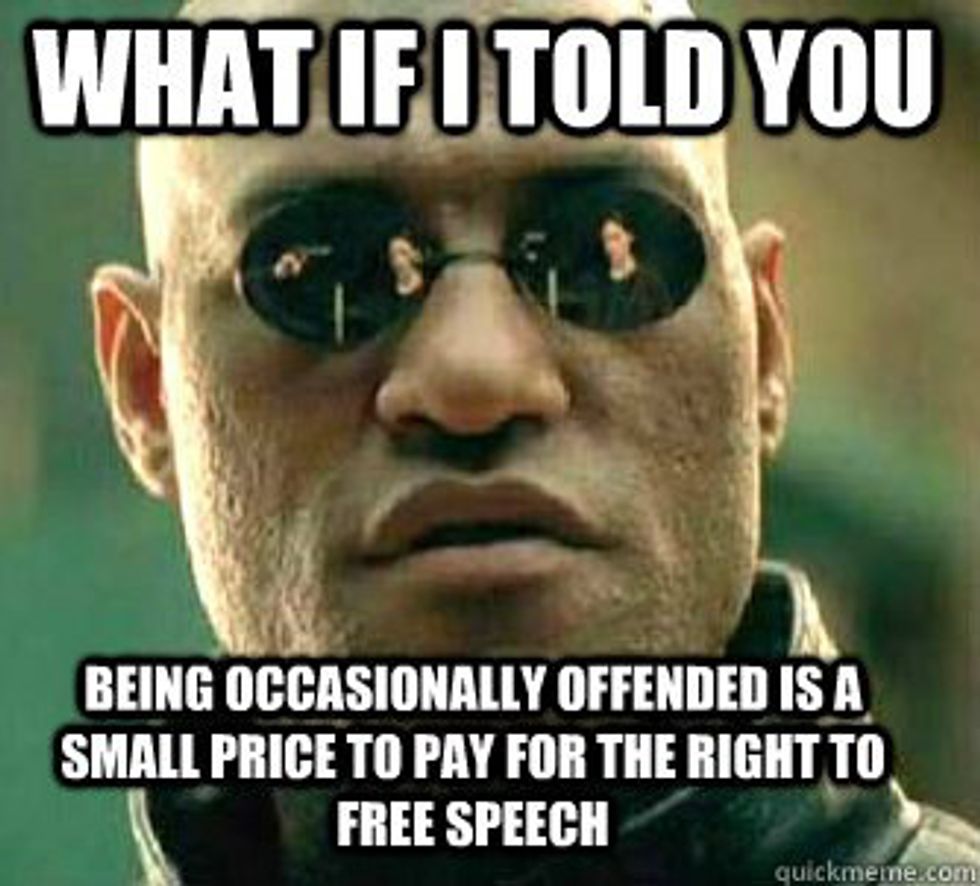

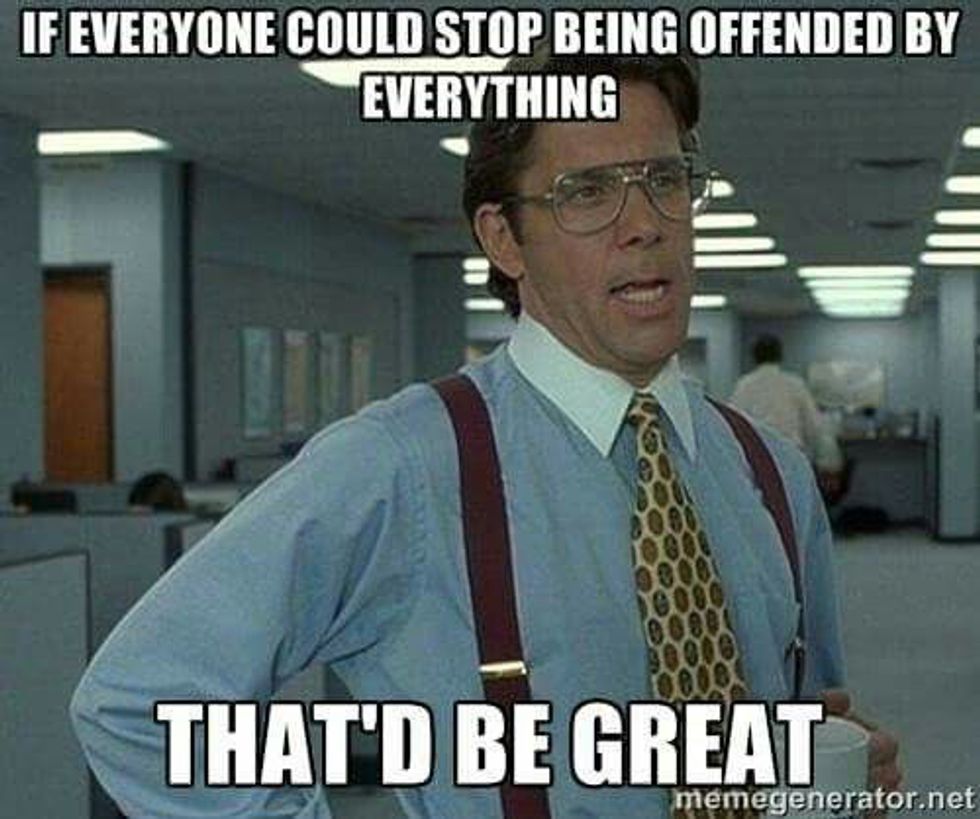
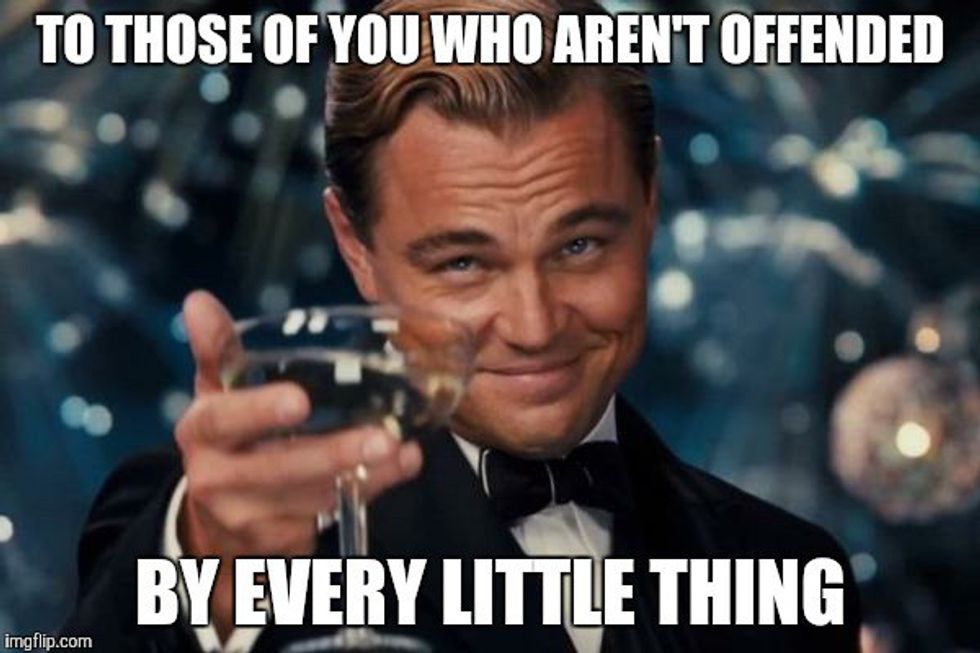



 mr and mrs potato head
StableDiffusion
mr and mrs potato head
StableDiffusion










